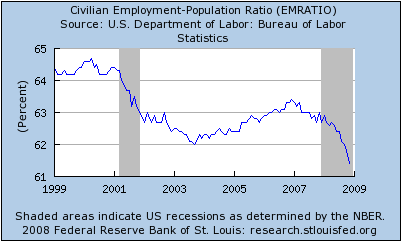Imagine that you’re a manager for a large investment fund and you’ve recently been contemplating your position on Citigroup. How would this press release from Citi affect your opinion of their prospects?:
New York – Citi today announced the sale of its entire ownership interest of three North American partner credit card portfolios representing approximately $1.3 billion in managed assets. The cards portfolios were part of Citi Holdings. Terms of the deals were not disclosed. Citi will continue to service the portfolios through the first half of 2010 at which time the acquirer will assume all customer servicing aspects of the portfolios.
The sale of these card portfolios is consistent with Citi’s strategy to optimize the assets and businesses within Citi Holdings while working to generate long-term profitability and growth from Citicorp, which comprises its core franchise. Citi continues to make progress on its strategy and will continue to pursue opportunities within Citi Holdings that create the most value for stakeholders.
The answer should be “not much, or perhaps a little negatively” because the press release contains close to no information at all. Here is Floyd Norris:
A few unanswered questions:
1. Who is the buyer?
2. Which card portfolios are being sold?
3. What is the price?
4. Is there a profit or loss?A check of Citi’s last set of disclosures shows that Citi Holdings had $67.6 billion in such credit card portfolios in the second quarter, so this is a small part of that. Still, I can’t remember a deal announcement when a company said it had sold undisclosed assets to an undisclosed buyer for an undisclosed price, resulting in an undisclosed profit or loss.
Chris Kaufman at Reuters noted the same.
Now, to be fair, there is some information in the release if you have some context. In January 2009 Citigroup separated “into Citicorp, housing its key banking business, and Citi Holdings, which included its brokerage, consumer finance, and troubled assets.” In other words, Citi Holdings is the bucket holding “assets that Citigroup is trying to sell or wind down.” The press release is a signal to the market that Citi has been able to offload some of those assets – it’s an attempt to speak of improved market conditions. But the refusal to release any details suggests that they sold the portfolios at a deep discount to face value, which implies either that Citi was desperate for the cash (a negative signal) or that they think the portfolios were worth even less than they got for them, which doesn’t bode well for the rest of their credit card holdings (also a negative signal). It’s unsurprising, then, that Citi were down 4.1% in afternoon trading after the release.
Some more information did emerge later on. American Banker, citing “industry members with knowledge of the transaction,” reported:
The buyer was U.S. Bancorp, according to industry members with knowledge of the transaction, who identified the assets as the card portfolios for KeyCorp and Associated Banc-Corp, which Citi issues as an agent bank, and the affinity card for the American Dental Association.
But a spokeswoman for Citi, which only identified the portfolios as “North American partner credit card portfolios” in a press release, would not comment, identify the buyer, or elaborate on the release. U.S. Bancorp, Associated Bank and the American Dental Association did not return calls by press time; a spokesman for KeyCorp would not discuss the matter.
It’s tremendously frustrating that even this titbit of information needed to be extracted via a leak. Did Maria Aspan — the author of the piece at American Banker — take somebody out for a beer? Did the information come from somebody at Citigroup, Bancorp or one of the law firms that represent them?
In what seems perfectly designed to turn that furstration into anger, we then have other media outlets reporting this extra information unattributed. Here‘s the Wall Street Journal:
Citigroup Inc. sold its interest in three North American credit-card portfolios to U.S. Bancorp of Minneapolis, continuing the New York bank’s effort to unload assets that aren’t considered to be a core part of its business, according to people familiar with the situation.
[…]
Citigroup announced the sale, but it didn’t identify the buyer or type of portfolio that was being sold. Representatives of U.S. Bancorp couldn’t be reached for comment.
That’s it. There’s no mention of where they got Bancorp from at all.
It’s all whispers and rumours, friendships and acquaintences. It’s no way for the market to get their information.
Here’s my it’ll-never-happen suggestion for improving banking regulation:
Any purchase or sale of assets representing more than 1% of a bank’s previous holdings in that asset class [in this case the sale represented 1.9% of Citi’s credit card holdings] must be accompanied by the immediate public release of information uniquely identifing the assets bought or sold and the agreed terms of the deal, including the price. Identities of all parties involved must be publicly disclosed within 6 months of the transaction.
